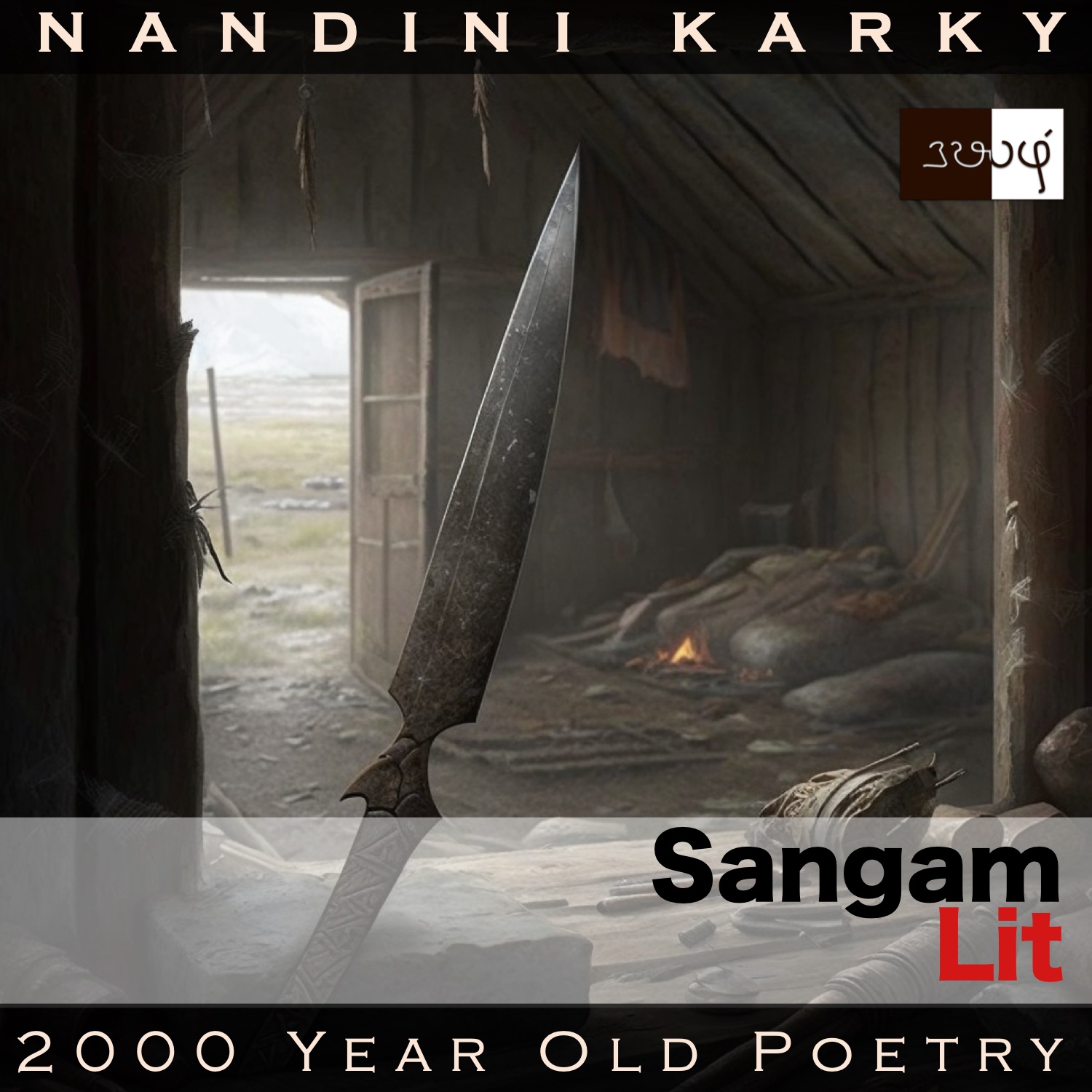Podcast: Play in new window | Download
Subscribe: Apple Podcasts | Spotify | Amazon Music | Android | iHeartRadio | TuneIn | RSS | More
In this episode, we observe an ingenious technique to prevent a war, as portrayed in Sangam Literary work, Puranaanooru 95, penned about the Velir King Athiyamaan Nedumaan Anji by the poet Avvaiyaar. Set in the category of ‘Paadaan Thinai’ or ‘King’s praise’, the verse talks about how a messenger rendered the perfect words poised to change an enemy king’s heart.

இவ்வே, பீலி அணிந்து, மாலை சூட்டி,
கண் திரள் நோன் காழ் திருத்தி, நெய் அணிந்து,
கடியுடை வியல் நகரவ்வே; அவ்வே,
பகைவர்க் குத்தி, கோடு, நுதி, சிதைந்து,
கொல் துறைக் குற்றில மாதோ என்றும்
உண்டாயின் பதம் கொடுத்து,
இல்லாயின் உடன் உண்ணும்,
இல்லோர் ஒக்கல் தலைவன்,
அண்ணல் எம் கோமான் வைந் நுதி வேலே.
A crisp verse that has a laudable intent! Continuing in this series of songs on King Athiyamaan, we find this one has the setting when another Velir King Thondaimaan, feeling arrogant about the prowess of his army, decides to wage war on Athiyamaan. At this time, understanding the negative impact of war on people of both nations, King Athiyamaan sends this poet as a messenger to dissuade that king from his intentions. When Avvaiyaar arrives at Thondaimaan’s capital, the king decides to give her a tour of his weaponry. At the end of the tour, the poet says these words:
“Those that are here are covered with peacock feathers, decorated with garlands, with the sharp rods perfected so as to be pleasing to the eyes, well-oiled, and are resting in the well-guarded, wide mansion of yours; Those that are there, after piercing enemies, have their tips and sides ruined and are lying misshapen in the blacksmith’s small hut. Indeed, such is the present state of the sharp-tipped spear of my esteemed leader- the one who showers on others when he has plenty and shares what he has when he doesn’t have enough – that kind patron of the impoverished!”
Time to delve into the nuances. The poet starts by giving a detailed description of the state of weapons in Thondaiman’s arsenal. She praises how they look so dazzling, adorned with peacock feathers and tied with garlands. Not only that, the tips are sharpened to perfection and the spears entire are gleaming because of the oil coated on them. And she finishes by saying where these are located, that being the guarded and comfortable palace of this king. Now, she turns to talk about the pitiable state of Athiyamaan’s spears, those utterly ruined because of their attack on enemies with their tips and sides bent and out of shape and lying now at the blacksmith’s humble hut. Before she concludes, she describes her king as one who whether he has plenty to give or not, he always takes care of those supplicants who come seeking at his door.
The first thing to celebrate in this verse is the notion that a king then wanted to avoid war. That realisation in a time when wars and victories were so high on their scale of priorities is something strikingly out of the norm. How does Avvaiyaar go about fulfilling this wish of the king? To understand that, let’s take a moment and revert back to the situation where she seemingly praises Thondaimaan’s well-polished spears and talks disparagingly of Athiyamaan’s broken ones. If we delve deeper, in truth those words insulting Athiyamaan’s weapons would have pierced the listening king’s heart! Pure terror indeed when she describes those bent and broken spears because they sound as if they have been used to the utmost and won victories many for their king! The hidden core of her message is not about where the spears are now, but where they have been! And so, as if praising Thondaimaan, she insults his safe and comfortable spears, and as if insulting Athiyamaan, she praises his battle-spent weapons. The exact thought in this verse is echoed in the modern saying, ‘A ship in harbour is safe, but that is not what ships are built for’. Isn’t that a call to action from across the centuries to put whatever talents or resources that we are privileged to posses to good use?




Share your thoughts...